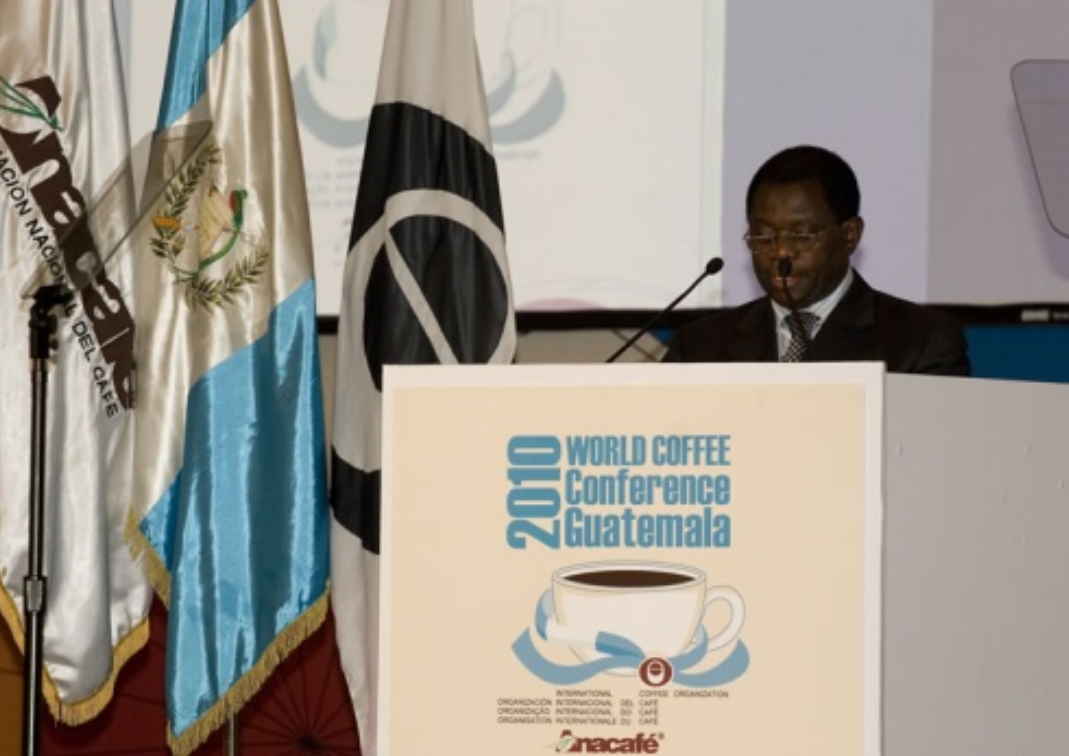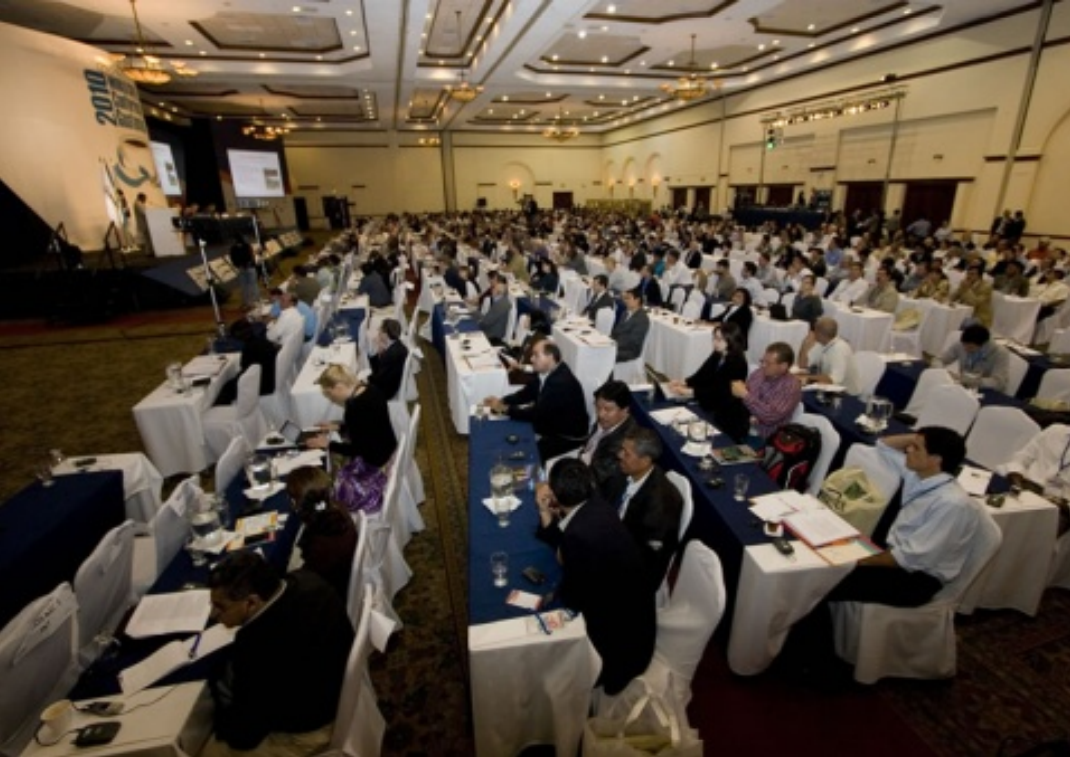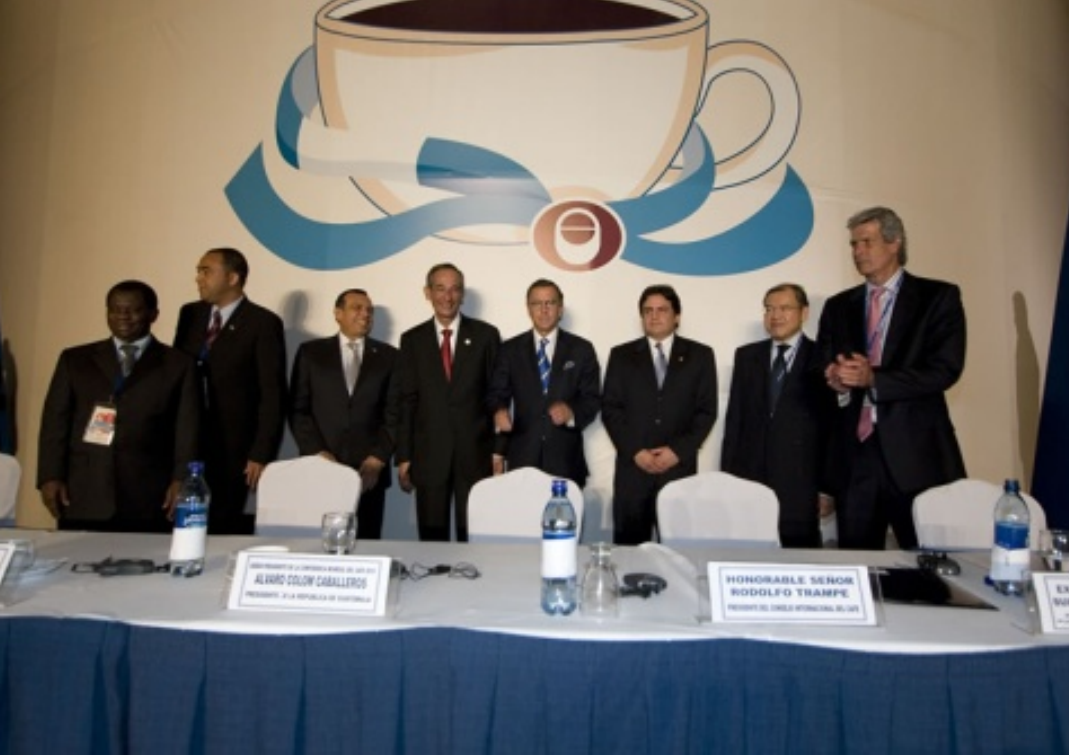Amb. Mchumo signs documents to inaugurate coffee project for Guatemala and Jamaica
Guatemala City - The Managing Director was an honored speaker at the 3rd World Coffee Conference held in Guatemala City, February 26, 2010. The conference was opened and chaired by the His Excellency, Mr. Alvaro Colom, the president of Guatemala. Other high-level speakers included respectively, the presidents of Honduras and El Salvador, Mr. Porfirio Lobo and Carlos Mauricio Funes.

At the conference, Amb. Mchumo and Dr. Christopher Tufton, Jamaica's Minister of Agriculture signed the inauguration documents for the CFC project: "Competitive Coffee Enterprises Program in Guatemala and Jamaica" with a cost of USD 4.8 million, and co-financing provided by Oikocredit, whose objective is to improve the competitiveness of small coffee producers in selected regions of the two countries. The project implementation will also be supported by the Rural Development Bank of Guatemala (Banrural), ICO, and Anacafe.
Amb. Mchumo outlined a number of interventions within the coffee sector by the Common Fund. "Coffee plays a central role in the economies of many developing countries and the Common Fund is cognisant of this fact and it is for this reason that coffee remains the leading commodity benefiting from CFC assistance among the more than 32 commodities which receive CFC financing," he said.
Over the last 20 years, the Common Fund has financed 32 projects on coffee development (22 regular and 10 Fast Track projects) with a total cost of USD 93.5 million of which CFC has provided USD 51.1 million and of which USD 40.3 million in the form of grants and USD 10.8 million as concessional loans. The measures and actions supported by the Common Fund in the coffee sector cover interventions such as production and productivity improvement, value addition, finding new markets, introducing new trading systems, improving access to finance through structured trade finance and piloting innovative credit schemes.
Amb. Mchumo said that for rural populations, essential income is derived from production and trade of commodities in developing countries, as well as a larger proportion of revenues and foreign exchange earnings. "We are aware that although coffee has transformed itself into a global commodity, coffee remains essentially a commodity connected with poverty, mainly because it is grown or harvested by poor smallholder farmers in rural areas in Central America, which have not yet benefited from the global coffee industry."


